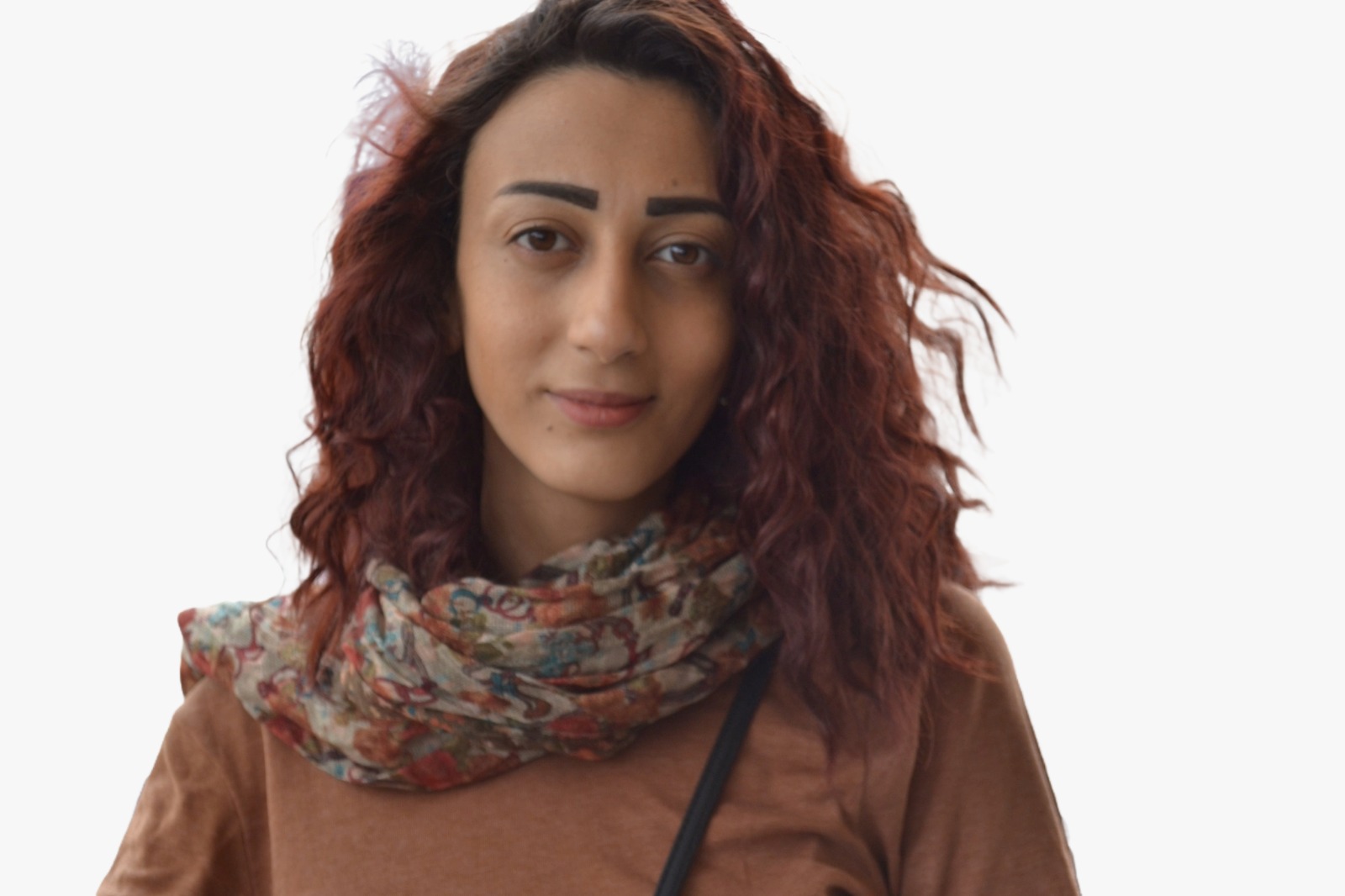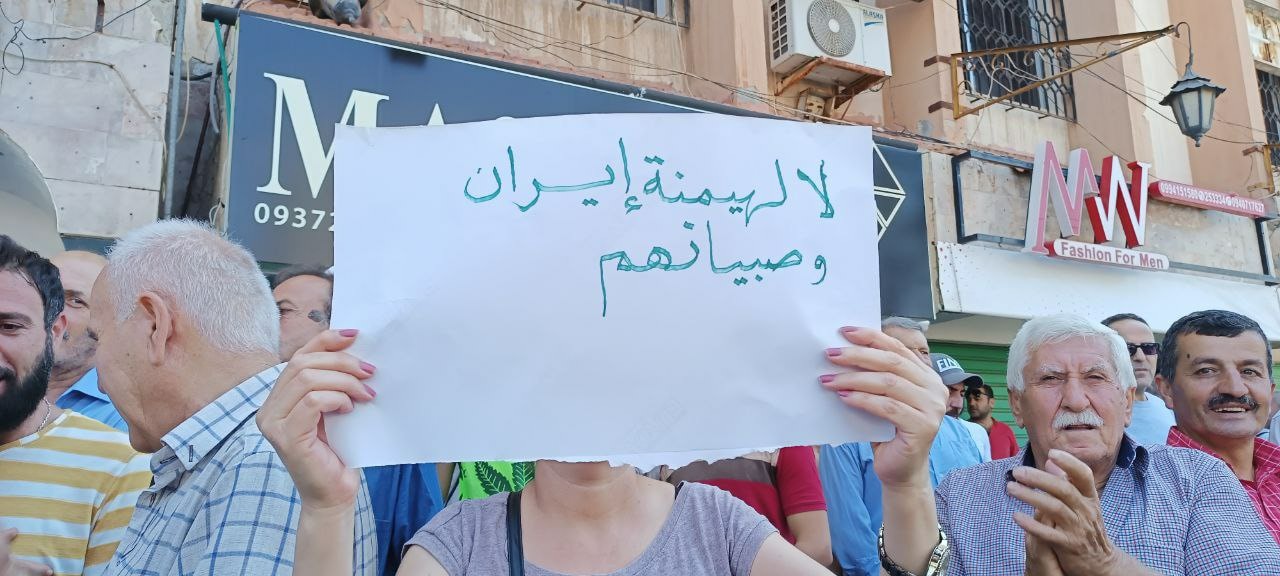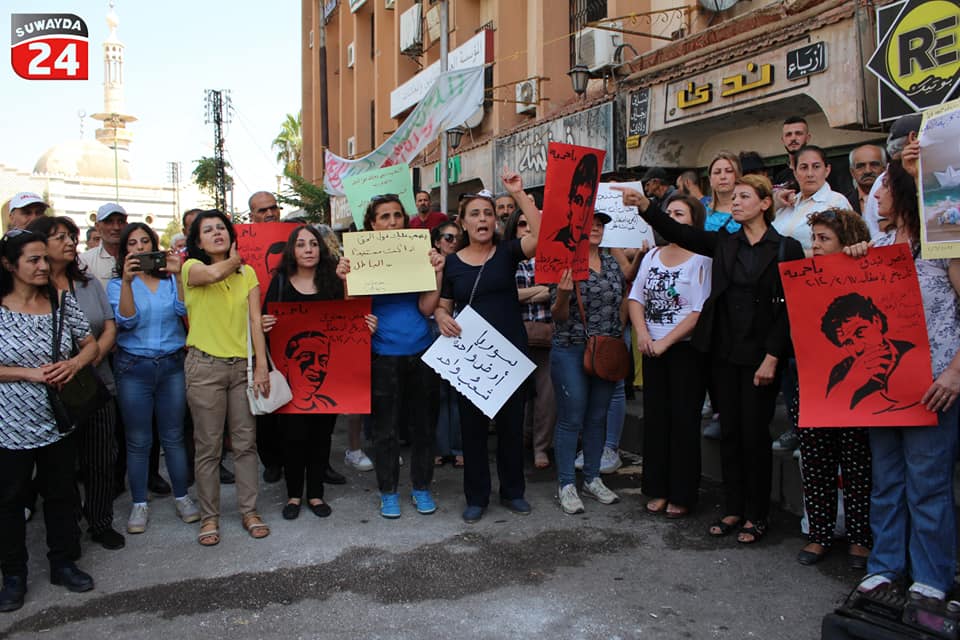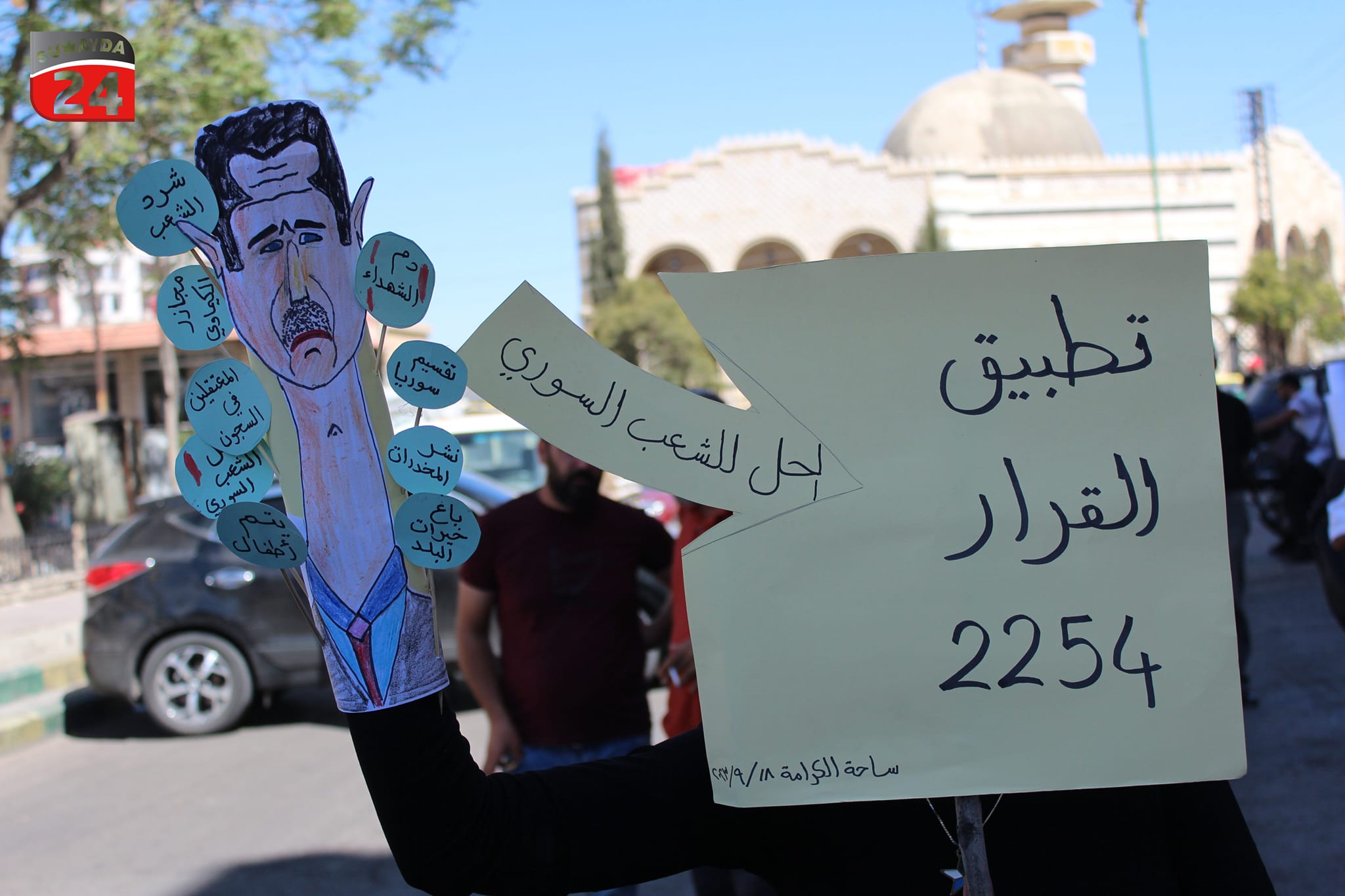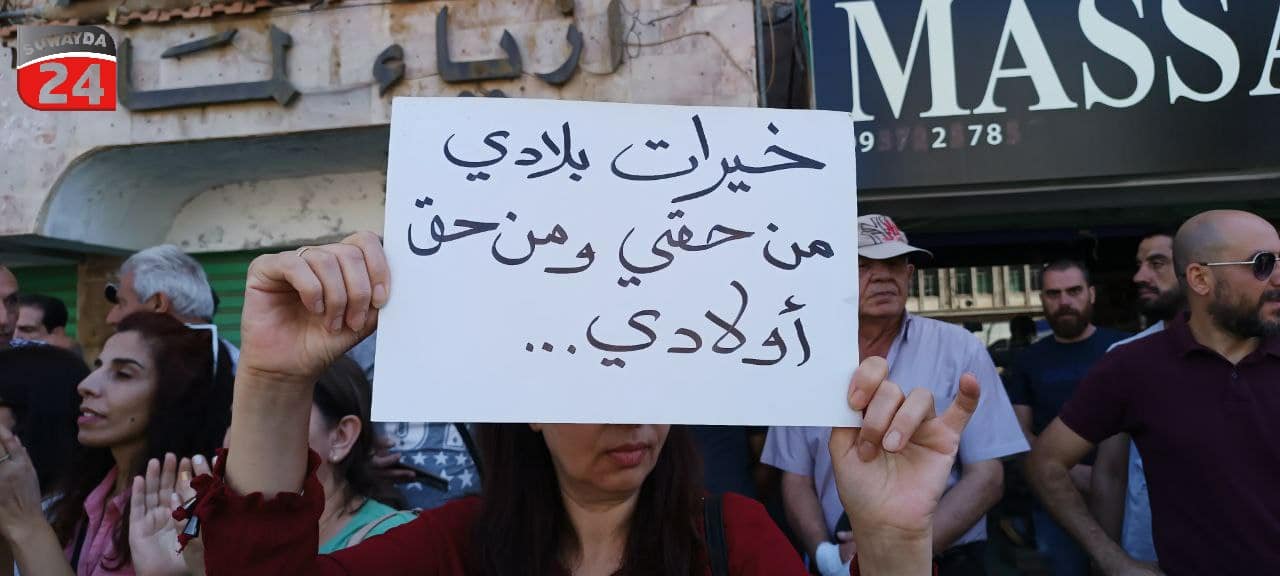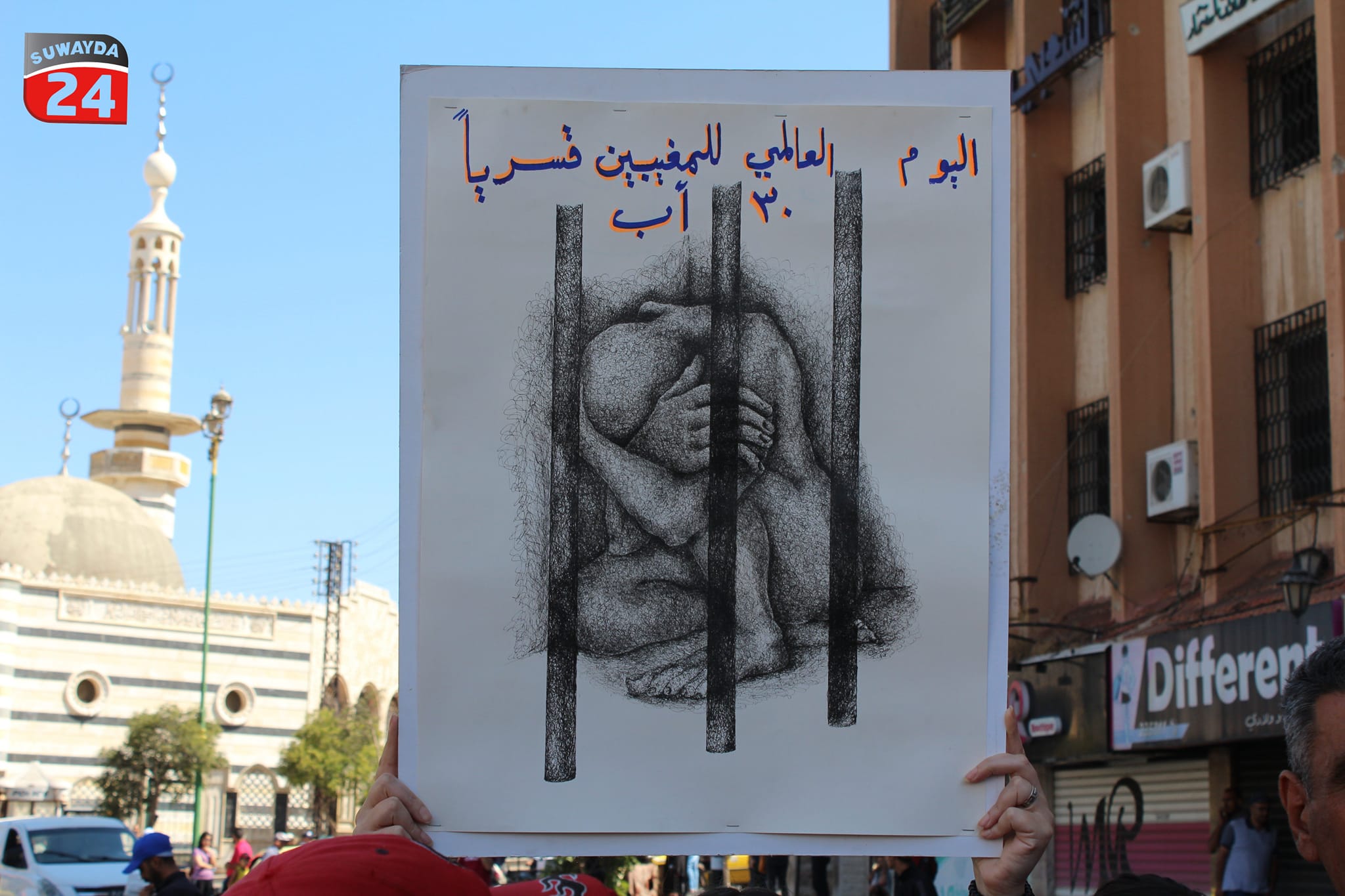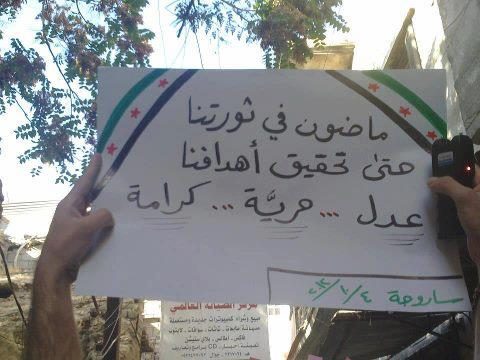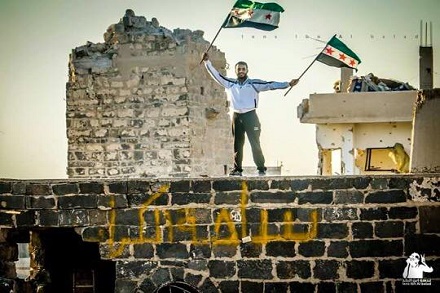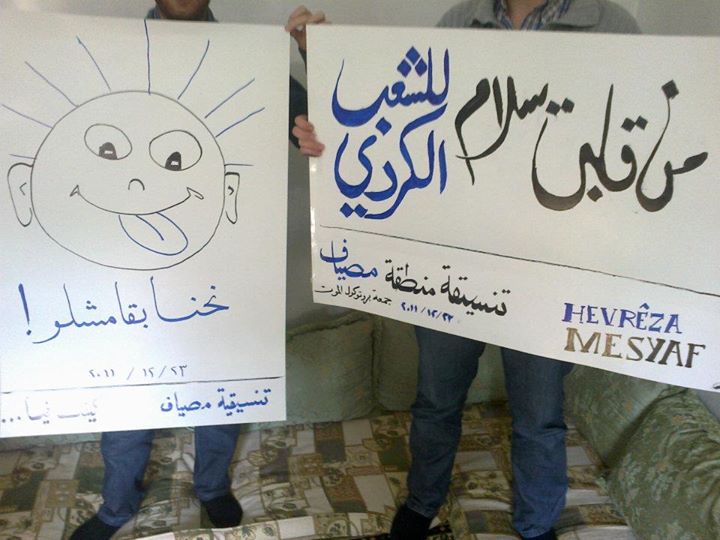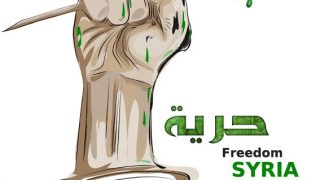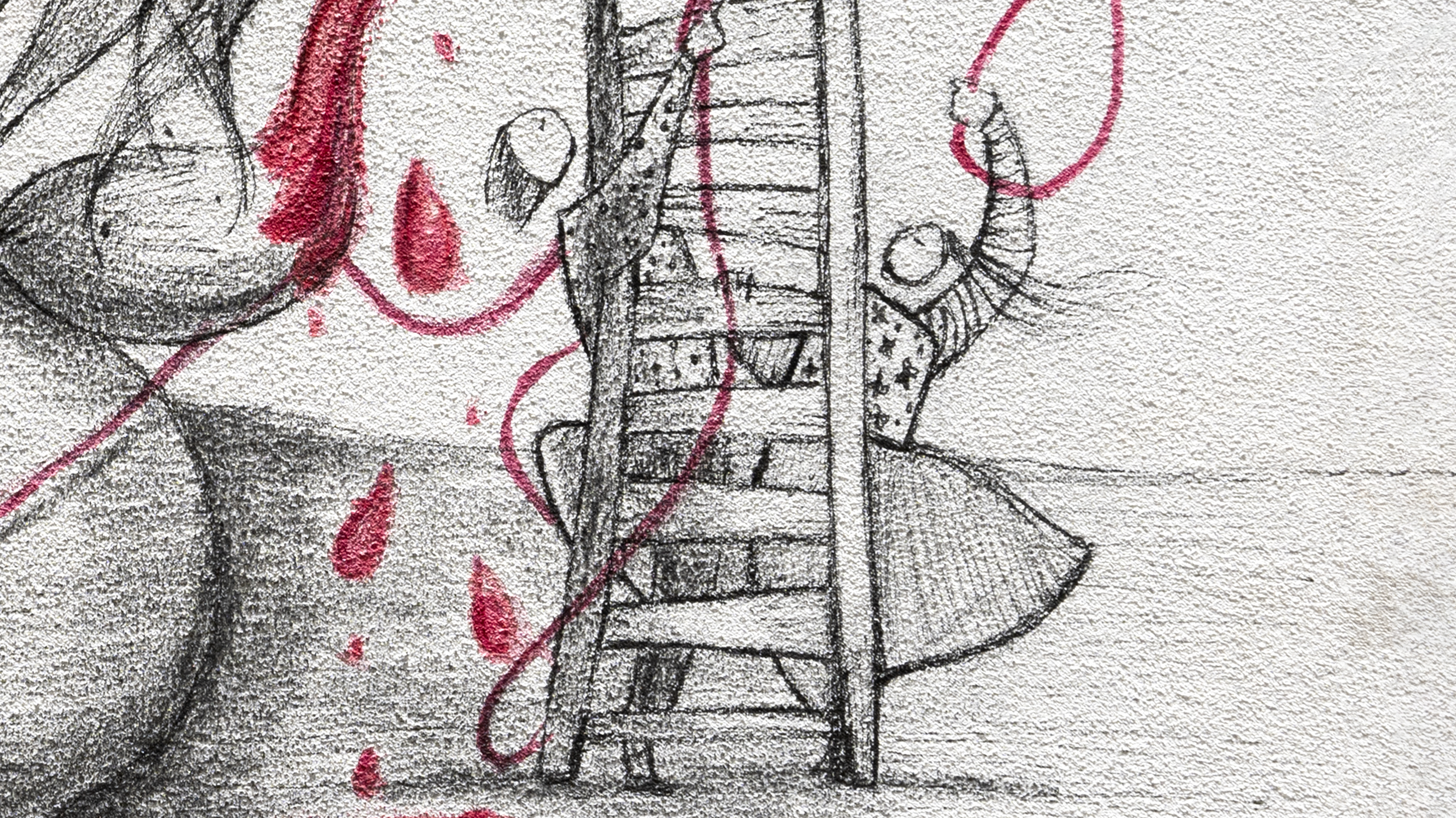"From First Bread to Last Freedom" is a slogan written on papers wrapped around loaves of bread (al-mallooh) distributed by a group of women in an independent initiative to the protesters in al-Karama Square in the city of Sweida in southern Syria on the first of September 2023. The city has been witnessing continuous widespread protests that began in mid-August 2023. The locals demanded "the overthrow of the regime and its intelligence apparatuses, the implementation of UN Resolution 2254, the release of detainees, and the disclosure of the fate of the forcibly disappeared." They raised banners bearing slogans such as "The country’s resources are my right and the right of my children," "No to the hegemony of Iran and its affiliates," and "We assert our claim to the port, the land, and the reopening of the airport."
Perhaps, the slogan "From First Bread to Last Freedom" summarizes and amplifies the essence of these protests. They emerged in response to decisions by the regime's government to lift subsidies on fuel, a mere day after increasing the salaries of state employees and retirees, both civilian and military, by 100%. Subsidized gasoline (90 octane) surged from 3.000 to 8.000 liras, while gasoline (95 octane) increased from 10.000 to 30.500 liras. Subsidized diesel rose from 700 to 2.000 liras, and industrial sector diesel jumped from 5.400 liras to 11.550 liras. This was accompanied by an unprecedented surge in the exchange rate of the Syrian pound against the US dollar, exceeding 15.000 liras. This left citizens, whose monthly income does not exceed the equivalent of 20 US dollars even after the increase, grappling with helplessness and uncertainty. "It is as if the authorities see no solutions to their problems apart from tapping into the pockets of the looted and exhausted people," expresses Samar (a pseudonym), a young participant in these protests, via WhatsApp.
"While the locals draw on their own resources through social solidarity, and some lean on the support of their emigrant children, the situation has, as Mazen Badrieh, one of the organizers of the current movement, conveys to Syria Untold via WhatsApp, 'reached a suffocating stage, surpassing the capacity of the local community to bear.'"
"The Old has Died, and the New has not yet Been Born... Contribute to Building the Future of the Country"
This slogan, raised in one of the current protests (as reported by the Sweida 24 website on the 5th of September), embodies the vision embraced by the new movement. It signifies a departure from past disputes, while holding on to the unity of Syria, and the legitimate aspirations of the people. Samar (a pseudonym), one of the participants in the movement, asserts, "Today, people are more aware and mature. They have come to understand their needs. They do not wish for a repeat of 2011 because they now know that the extremists, whether from the regime or the opposition, do not seek a resolution in Syria. They aim to drag the protest movement back into the same old tunnel to control it and prevent it from achieving its goals". Samar emphasizes that "the high prices paid by Syrians have not been in vain, they rather served as lessons and conclusions. Neither violence, sectarianism, military interventions, nor chaotic action are acceptable."
Days before the protests, popular groups issued a call to the mountain's residents, urging them to take to the streets daily, starting from Thursday, August 17, 2023, each group in their respective area.
According to Mazen Badrieh, one of the current movement’s organizers, "This call was disseminated among various social and religious factions, including members of armed factions aligned with the regime, to inform them of the residents’ intention to peacefully demonstrate in pursuit of their rights. We hoped that those who chose not to participate would not obstruct the aspirations of their own people." He further elaborated on these initial stages, "In our inaugural statement, we deliberately kept the demands measure, apprehensive that residents might hesitate to join. On the first day, we convened with those assembled in Karama Square, where we emphasized the imperative of a general strike. The response was overwhelmingly positive. Then, one of the protesters called for the regime’s overthrow, and the entire crowd chanted 'down with... down with.' We realized that the street was ready, and now we must follow its will."
Following unanimous agreement on the necessity of the strike, a group of young peaceful protesters volunteered to ensure everyone's adherence to the announced strike. The volunteers formed three teams, with each distinct tasks, such as the closure of the Baath Party offices in various cities and towns across the province, preventing any potential assaults on public institutions, and organizing sit-ins in public squares. According to the activists we contacted, the protesters also committed not to bear weapons during the protests under any circumstances.
After the start of the protests, a group was emerged on a social media platform under the name "People's Uprising." Lubna al-Basit, a participating activist in the ongoing protests, elucidates the rational behind its inception and its purpose, stating via WhatsApp to Syria Untold, "The group is open, with anyone able to join it through its designated link. It was established to provide an open space for all opinions, even the most extreme, whether from the loyalist or oppositional perspective side. All ideas are subject to discussion. Then, a vote is taken on the proposal that carries a national and non-exclusive dimension, which does jeopardize the interests of any category of the people in the struggle to fulfill the movement’s demands."
Later, supporters of the Syrian regime circulated recordings and messages that reached this group as proposals from certain individuals, falsely claiming that they were leaked demands endorsed by the movement. However, both Lubna al-Basit (a group member) and Mazen Badrieh (the group's administrator) have clarified that they were merely suggestions, deliberated upon and immediately rejected within the group. Badrieh emphasized, "Presenting these suggestions to the public as the movement’s demands by Rafik Latif and others is nothing but a distortion of the truth and an attempt to demonize the movement and divert its trajectory". This in particularly true since "the security authorities are absent and concealed when they are truly needed, intervening primarily to suppress speech, and deploying their enforcers according to their directives against their own people," as Sheikh Hikmat al-Hijri said in his recent statement. The province has been suffering from a lack of security since 2014, while the Syrian authority has refrained from fulfilling its duty to safeguard civilians.
The Security Situation in the City
"The role of the Syrian authority in the province of Sweida shifted into a symbolic status between 2014 and 2015, largely due to various factors. Most notably, the emergence of local forces like ‘Rijal al-Karama’ [the Men of Dignity] movement, and the widespread refusal of compulsory conscription, which the regime perceived as an act of rebellion," explains Rayan Maarouf, the editor-in-chief of Sweida 24 network, in a conversation with Syria Untold via Messenger.
According to Maarouf, "These circumstances led to the diminishing influence of the regime’s central authority in the governate. The regime stipulated that Sweida's men must return to serve in its army as a prerequisite for improving the security situation. Later, the role of local armed forces expended to fill the security void, and external threats —most notably the ISIS attack on the governate in 2018, further solidified this militarization within the local community."
"The group is open, with anyone able to join it through its designated link. It was established to provide an open space for all opinions, even the most extreme, whether from the loyalist or oppositional perspective side. All ideas are subject to discussion," says Lubna al-Basit, a participating activist in the ongoing protests.
In response, the regime incorporated some local armed groups, granting selected members security credentials and varying degrees of authority. This instilled fear in the citizens, as these groups resorted to organized crime as a source of funding under the guise of authority.
Due to the escalating activities of these armed factions, particularly the gang led by Raji Falhout, affiliated with the Military Intelligence Directorate, an armed civil uprising erupted in July 2022, with involvement from Rijal al-Karama and other factions. The armed confrontations ended with the dismantling of the gang's headquarters and Raji Falhout’s subsequent escape.
The Historical Trajectory of the Revolutionary Movement in Sweida
Every movement undertaken by the governorate of Sweida faces the question, "Where were you since 2011?" The reality is that Sweida has been active in the Syrian scene since the start of the Syrian revolution against Bashar al-Assad's regime in 2011. Calls for demonstrations in Sweida began in the earliest days of the Syrian revolution. Coordination committees were established, such as the Coordination Committee of Sweida Governorate, the Coordination Committee of Shahba, the Gathering of the Free of Sweida, the Sweida Governorate Coordination, the Shahba Coordination, the Ahrar Sweida Gathering, among others. Numerous sit-ins were organized to honor the martyrs, and daily demonstrations were conducted, often met with aggression from security forces and Shabiha (pro-regime militias). Activists and opposition figures who partook in these events were apprehended and some remain missing to this day, like Rami al-Hanawi, Yasser Aa-Awad, and Shafiq Shuqair, who have been detained since August 2012, with no information on their fate. Others have died in detention due to torture, like Nawras Hindi Abu Said, who was arrested on June 28, 2013, and succumbed to torture on January 16, 2014.
This peaceful revolutionary movement concurred with a union movement led by a group of Free Lawyers. They carried out the initial trade union protest in front of the Bar Association branch in Sweida on March 24, 2011. As per Ayman Shayb al-Din, a member of the Free Lawyers group, who I contacted via Messenger and WhatsApp, "The group's initial statement included the Syrian people’s demands for freedom, dignity, and justice. They received official approval from the Lawyers Syndicate’s branch in Sweida, officially sealed with their stamp. They later formed a committee for voluntary and free defense of detainees and representation in various courts, covering all litigation expenses from their own resources through a designated fund."
Syria’s Labor Communist Party, a rich political history
16 October 2020
"The Free Lawyers, in collaboration with the Free Engineers, Teachers, Doctors, and Pharmacists, organized a trade union protest on July 19, 2011," Shayb al-Din recounts. Afterward, they were attacked and beaten by the Shabiha. He recalls, "About 100 Shabih surrounded me, and I was in a doctor's clinic in Sweida. This day and its details are unforgettable for me."
In response, the Free Lawyers condemned this act, and initiated a sit-in within their union headquarters on July 21, 2011. According to Shayb al-Din, "Security forces and pro-government thugs besieged the union until 7:00 PM. They attempted to hit the union building with stones and gasoline, preparing to set it on fire. It was only through the intervention of civil society in Sweida that a secure and dignified exit for the lawyers was ensured.
This activity of the Free Lawyers angered the regime. Many among them were arrested multiple times. Some have since left Syria, while many remain on the wanted list of various security agencies. They are now present in the protest squares among the people, demanding freedom, dignity, and the establishment of the rule of law. On August 23, 2023, they issued a statement declaring: "To call for the government’s dismissal, based on its decisions against the people, is far from reality. Over the course of more than half a decade, Syria witnessed the succession of numerous governments within the current regime, each facing its own set of failures. We believe that the root of this failure lies with those who shape the nation’s policies in line with the constitution, particularly the President of the Republic, the supreme ruler with all executive, legislative, judicial, and security powers."
The regime’s brutality escalated to suppress the peaceful revolutionary movement in Sweida. On July 5, 2012, activist opposition figures Mu’in Radwan and Safwan Shuqair were targeted in a bomb explosion that claimed their lives. Their deaths prompted thousands of protesters to take to the streets in mourning. In response, the regime unleased live bullets and tear gas canisters to disperse the crowds.
Armed Participation and Military Involvement in the Syrian Uprising
Militarily, some individuals from Sweida joined the armed confrontation with regime forces outside the governate’s borders. One of the most significant events during that period was the defection of First Lieutenant Khaldoun Zain al-Din, who joined the ranks of the Free Syrian Army in Daraa in mid-September 2011. The regime attempted to downplay the significance of this event by pressuring the Druze spiritual leader, Sheikh al-Aql, Ahmed al-Hajri, the brother of Sheikh Hikmat al-Hajri, to distance himself from Khaldoun in a statement broadcasted on Syrian media. However, Sheikh Ahmed rejected this demand as reported by media outlets. Later, the lieutenant was martyred in the Battle of Dhahr al-Jabal, where the Assad regime prevented the Free Syrian Army from entering Sweida on January 13, 2013. Due to security restrictions, the people of Zein al-Din were unable to hold a funeral or establish a funeral procession in his honor. Today, the current movement recalls his memory and his name is chanted in the squares. As the young activist Lubna al-Basit expressed in one of the recent demonstrations: "The revolution must persist, we are the children of Khaldoun Zein al-Din."
Journalist and former detainee Anis Salloum believes that "the shift from revolution to armed confrontation against the regime in late 2012 and early 2013 affected the peaceful revolutionary movement in Sweida, much like it did across Syria.
Journalist and former detainee Anis Salloum believes that "the shift from revolution to armed confrontation against the regime in late 2012 and early 2013 affected the peaceful revolutionary movement in Sweida, much like it did across Syria. This was reflected in its momentum, which at times escalated and at other times subsided." With the regime securing military support from Iran and Russia and reclaiming control over a significant portion of liberated areas, Sweida, which was already flooded with internal problems, experienced new form of demand-based movements, before reaching the current protests.
Demand-Based Protests
In recent years, Sweida’s public squares have witnessed diverse demand-driven protest activities, whether at the sectoral and factional level, like the recurrent strikes by public transportation drivers in response to insufficient fuel allocations. The website Sweida 24 quoted one of the drivers stating, "The distribution of gasoline allowances for public drivers is unjust. Most receive their allowances every ten days, which only covers operating the vehicle for four days." These drivers even established a dedicated Facebook page to articulate their problems and demands.
Furthermore, there were protests by apple farmers due to the government's failure to protect the main crop of the province and its farmers. The Syrian authorities addressed these various demand-driven protests with temporary solutions to prevent their escalation, such as implementing controls for apple sales and expediting the distribution of fuel allocations to the province.
In addition, there were protests triggered by immediate events. This included demonstrations by medical staff at the National Hospital in response to recurrent attacks they faced, as well as protests against the brutal and inhumane killing of a civilian by criminal gangs in a public park, among other incidents. However, they ended without a resolution to the overall security situation.
Notably, the most prominent protests were the civil movements organized by activists on a recurring basis from 2015 up to the present movement. The inaugural one, "Khanaqtuna" [You suffocated us] movement in September 2015, was a peaceful sit-in protest led by activists to advocating for improved living conditions. It came to an end after two bombings, one targeting Sheikh Waheed al-Balous’ convoy, and the other directed at the National Hospital. This heightened public anxiety and effectively ended the movement, as recounted by Shadi al-Dubaisi, one of its organizers.
Subsequently, in 2016, the arbitrary government decisions to dismiss opposition-affiliated teachers prompted student protests demanding the reinstatement of unfairly terminated educators. This was followed by a new movement named "Hattamtona" ("You Have Ruined Us"). Its participants held banners with messages like "The dignity of the teacher is the dignity of society." In addition to livelihood-related demands, they called for the complete removal of occupying forces from Syrian territories and the release of all detainees. Simultaneous to the protesters' sit-in, the regime called for a pro-government march, and gunfire was employed to disperse the demonstrators. This escalated tensions in the streets and discouraged further participation in subsequent protests, ultimately resulting in the movement’s cessation, according to Shadi al-Debisi, one of its organizers.
Additionally, in 2020, a new movement emerged under the name "Badna N’ish" ("We Want to Live"). Around 300 citizens participated, calling for “freedom, social justice, the resignation of Bashar al-Assad, and the release of detainees”, as described by Shadi al-Debisi. Demonstrators from this movement displayed a banner bearing the words, “Leave... We want a secular, civil state that unites Syrians and treats them equally.” “This movement was met with an escalated security response, leading to the arrest of several activists in June of the same year. They were released months later, thanks to the efforts of Rijal al-Karama movement,” as Shadi informs us.
In 2020, a new movement emerged under the name Badna N’ish ("We Want to Live"). Around 300 citizens participated, calling for “freedom, social justice, the resignation of Bashar al-Assad, and the release of detainees”, as described by Shadi al-Debisi.
In the following years, there were several notable protests, with the most significant occurring in December 2022. These protests culminated in the tragic loss of two lives, including a police officer, and the injury of 18 others at the hands of security forces. The governorate building was set on fire. The Assad regime accused the protesters of this act, yet a statement from the Media Office of the Spiritual Presidency of the Unitarian Muslims of the Druze on August 19 of the current year exonerated the youth of the movement. Delivered by Sheikh Hikmat al-Hajri, this statement cautioned “against a recurrence of past incidents, particularly the burning of the governorate building by certain factions, attempting to destroy incriminating files related to major corruptions cases they were involved in. Some attempted to discredit the honorable protesters and falsely accuse them. However, the truth is evident to all.
What distinguishes the recent Sweida movement?
One of the most distinctive features of this movement is the open and explicit support of its demands by the spiritual leadership of the Druze community, represented by the two Druze sheikhs al-Aql, Hamoud al-Hinnawi and Hikmat al-Hijri. They figures were previously known for their moderate stances. Sheikh al-Hinnawi personally joint the protesters in the town of al-Qurayya, affirming his support for their cause. Additionally, the statement issued by Sheikh Hikmat al-Hijri clearly unequivocally expresses his strong support for the movement's demands, despite the heightened nature of these demands. He underscores the exhaustion of patience and the imperative for those in positions of authority to either serve the people or step down.
The statement emphasized: "Whoever is incapable of fulfilling their duty towards their family, homeland, and economy, should relinquish their position, without hesitation or attempting to obstruct their position. Our economy has fallen to rock bottom, and people are now left without means to sustain their livelihoods. People are left to fend for themselves, with no recourse but through drastic action."
The stances of both al-Hinnawi and al-Hijri offered a protective social shield for the movement’s demands, encouraging an expansion of popular support. Dr. Jamal al-Shoufi, a political writer and researcher, points out that the Syrian opposition, spanning various Marxist, nationalist, and secular factions since the beginning of the revolution, has always carried a comprehensive national dimension. They rejected local flags, considering them symbols of a pre-state era.
Dr. Jamal tells Syria Untold via WhatsApp that the opposition factions in Sweida discovered that the popular extension of their political vision resonated widely with the national discourse of the spiritual authorities, particularly Sheikh Hikmat al-Hijri. The popular street, which is not involved in the political process and rejects division over regime or revolutionary flags, responded positively. They reevaluated the issue of local flags raised by the people, recognizing their capacity to unite diverse crowds, especially since the accompanying discourse was one of Syrian unity, devoid of any sectarian or separatist dimension.
Al-Shoufi underscores the non-political nature of the flag of the five borders (the Druze flag raised in the protests), stating: "It is a civilian flag of solidarity. It is typically raised by the Moahidin Druze during crises or in religious settings, and it is not used for political purposes."
Dr. Jamal al-Shoufi views the role of religious leaders in supporting the political movement as “supportive and inclusive, acknowledging the complexities of the Syrian situation and the importance of diversity. They presented themselves as moderate religious figures with a national discourse. They facilitated a platform for society to demand its rights, while distancing themselves from the direct political involvement, to which they do not aspire. Their stance on the movement was a supportive one, as they are sons of this people who are affected by injustice.”
On the other hand, Ramez Najib, a member of the political bureau of the opposition Syrian National Change Movement and its director in France, conveyed his views from Paris through Messenger: "I don't object to the raising of local flags like the flag of the five borders, but my issue is with raising it alone without the flag of the revolution. Other local flags were raised at the beginning of the Syrian revolution, and the regime exploited them to label the uprising as terrorist, treacherous, or separatist." He points out that "the flag of the revolution is officially recognized, not only by the Syrian opposition, but also by the United Nations and other international entities. It is necessary to raise it in the Sweida protests to refute the regime's attempts to accuse the Sweida revolution of sectarianism or separatism. "
The recurrent emphasis on secularism in Sheikh Hikmat al-Hijri’s speech is interpreted by al-Shoufi as a distinction found in Druze religious literature. It sets apart religious figures who adhere to their own faith and remain independent from the contemporary figures, referring to those who are not religious, including civilians, politicians, and the people in general. This forms the "foundation of secularism rooted in the separation of politics from religious figures."
The participation of Bedouin tribes in the current movement is noteworthy, representing an authentic facet of the Sweida community. This demonstrates a decisive effort to mend historically tense relations between the Druze and tribal components. The regime played the most prominent role in exacerbating these tensions since the events of 2000. Abu Mohammed (a pseudonym), a member of the Bedouin tribes involved in the recent protests, states: "This is the first time we participate in Sweida's protests with this intensity. As the Bedouin tribes of Sweida, we support the demands of our people. We raised the flag of the five borders alongside the tribal flag to emphasize that we are one people against a criminal and murderous regime, clarifying that the rumors about demands for a Druze state are unfounded."
It is also important to note the active role played by women in this movement. They lead protests, chanted, formulated slogans, organized sit-ins, and maintained it peaceful aspects. They also arranged peaceful civil and artistic activities, adding momentum to the movement, and inspiring more residents to join. Additionally, women actively participated in popular gatherings and attended meetings with spiritual leaders. They have been integral to the movement from its inception. According to Samar (a pseudonym), "Women in Sweida have always been and continue to be equal partners with men throughout history. Women's emancipation is intertwined with the liberation of society as a whole. Today, women possess the experiences and expertise necessary to make their contributions indispensable and vital to any movement."
"Rijal al-Karama" Also Supported the Demands
The armed faction known as "Rijal al-Karama” [Men of Dignity], which is the most prominent armed group in Sweida, supported the demands of the movement. According to the faction’s media spokesperson, who preferred not to disclose his name, "In the past, it was difficult for us as an armed group, to intervene in any political or civil movement. However, in alignment with Sheikh al-Hijri's stance and the positions of the spiritual authorities, and in solidarity with the legitimate demands of the people, we stand alongside the movement today. Our youth participate as civilians, as sons of this province, without carrying weapons. We unequivocally declare our full readiness to protect the movement from any aggression. Until now, we have adhered to Sheikh Hikmat al-Hijri's cousel to maintain the peaceable nature of the movement and to steer clear of violence. We endorse the wisdom of his vision."
The "Rijal al-Karama" movement emerged as an armed social movement in 2013 under the leadership of Sheikh Wahid al-Balous (Abu Fahd), with the aim of protecting the region from potential attacks. It opposed the forced conscription of Druze youth into the Syrian army against their will, in aiming to protect the Druze community from becoming embroiled in the war for the interests of any party. Its founder raised the slogan "Syrian blood is forbidden to be shed by Syrians." The movement also played a role in protecting the governate’s residents from arrests and pressing for the release of detainees.
The founder of the movement, Wahid al-Balous, along with numerous fighters from the movement, was assassinated in September 2015 when an explosion targeted his convoy in Sweida governorate. The Syrian government was held accountable, and following his assassination, his brother Sheikh Rafat al-Balous assumed leadership. The movement experienced a period of reduced activities before Rafat al-Balous officially announced his resignation from the leadership of the movement due to his health condition. On February 6, 2017, Sheikh Abu Hassan Yahya al-Hajjar took over leadership and remains the leader of the movement to this day.
Initially, the movement adopted a neutral stance towards the Syrian government, refraining from open opposition. However, it did not tolerate security forces violations and their presence in the governate. This position was articulated by its founder in a statement published on April 15, 2014, wherein he asserted: "We, upholders of a principle, made our stance clear from the onset of events, in one of the farms of our village, of which I take great pride in its history and its people. In the presence of a large gathering of the villagers, we left no room for doubt or hesitance. We are neither supporters nor opponents, but patriots. Whoever is not loyal to his sect is not loyal to his country. We have remained committed to this approach, and anyone who harms the sons of the sect is not one of us, and we are not of him." Today, their position culminates in openly supporting the movement and participating in it.
Developments and Updates
The peaceful movement in Sweida has now entered its sixth week, even as the Syrian government attempts to provoke an armed confrontation. On September 11, the Sweida Governorate Council issued a statement expressing support solely for the citizens' demands for better living conditions and the fight against corruption: "We stands with the citizens' demands to improve their living conditions and combat corruption." However, they also called for the suppression of the protesters, stating, "We urge the security forces and the responsible authorities to ensure the safety of employees, institutions, and departments, so they can carry out their work smoothly, providing services to the citizens without any disruptions."
In swift response, the peaceful protesters demonstrated on September 13 in al-Karama Square, rejecting the statement that called for suppressing their movement. They conveyed their dissent through banners reading, "The Governorate Council does not represent me, it only represents its members." On the same day, a violent incident occurred when shots were fired at a group of peaceful protesters in front of the Baath Party branch headquarters in Sweida.
Journalist Hassan Dweir, who was on the scene for media coverage, stated through WhatsApp: "A group of protesters headed to the square in front of the building and attempted to damage the statue of Hafez al-Assad. They were met with gunshots fired into the air to disperse the protesters by armed men positioned on the building's roof. Three protesters were slightly injured by shrapnel." Prior to this incident, there were reports circulating about the arrival of security reinforcements to the province's police headquarters and the party's branch, according to Dweir: "The gunfire was not intended for direct harm, but rather as an intimidation tactic."
Following the incident, the protesters left the Baath Party branch building and proceeded to al-Karama Square, before heading to Sheikh Hakam al-Hijri’s farm to discuss the events, without resorting to violence in response to the aggression from the Baath Party's.
In a recorded speech by Sheikh Hakam al-Hijri in light of the incident, he stressed the importance of self-restraint and the continuation of the movement peacefully. He condemned the statement of the Governate Council, asserting that they are a "non-legislative executive body," without the authority to represent the people. He remarked, "In truth, the Governate Council is not elected, but rather appointed by a small group." He also condemned the shooting incident, stating: "I am not surprised by what occurred. I know that any harm that befalls us will be due to these fallen party members. The squares belong to us, and we will remain in them peacefully, whether for two days, a month, two months, a year, two years, and we will not retreat."
Sheikh Hamoud al-Hinnawi also condemned the incident, declaring, "Firing bullets cannot be tolerated. Anyone who seeks to harm our youth is an enemy who won't live. We have dealt with this regime for a long time, leaving all avenues for communication, yet they do not respond. We have been silent for a long time to preserve the unity of the nation and the blood of our youth. The situation will not persist under oppression and injustice." In response to these recent acts of violence, the protesters mobilized for a massive demonstration in al-Karama Square on Friday, September 15, described as the largest since the start of the protests. During this event, members of the Azzam family independently distributed Mansaf al-Malihiya dishes to the peaceful protesters. They also presented Mansaf to the police leadership in the governate, affirming their commitment to the peaceful nature of their movement and their rejection of deviating from this path.
Samar, speaking with Syria Untold through WhatsApp, says: "I am not distant from the people. I live with them and among them, and their concerns are my concerns, and their demands are my demands. We recognize that the road ahead is long, but what matters today is to focus on the economic, social, and political demands, and to push for the implementation of the political solution outlined in Resolution 2254. This is the slogan that people are now chanting in the squares."


